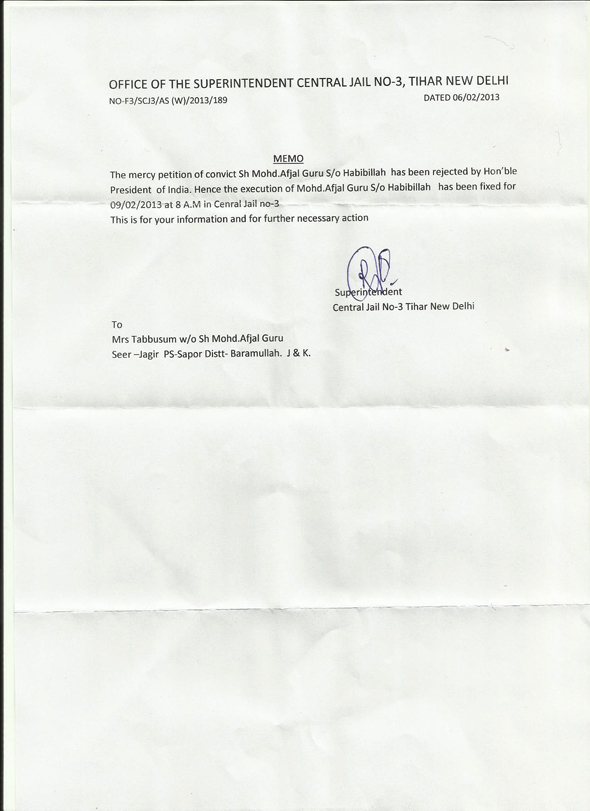![]()

Srinagar, Feb 11: The speed post sent by Tihar Jail superintendent to Afzal Guru's family in Kashmir Valley's Sopore town was delivered Monday, two days after he was hanged in the national capital. The letter reached postal authorities here Saturday evening, several hours after he was executed.
"A speed post letter has been delivered to us by postal authorities today. Tihar Jail authorities have sent this speed post to Afzal's family," Afzal Guru's cousin Yaseen told journalists in Daibgah (Jageer) village near Sopore town.
Senior postal officials in Srinagar, Jammu and Kashmir's summer capital, said the speed post was received Saturday evening - Afzal Guru was executed at 8 a.m. Saturday - but delivered Monday as Sunday was a public holiday.
"We received the speed post by air Saturday evening. It was addressed to Tabassum Guru (his wife). Sunday being a public holiday, the speed post has been delivered today," John Samuel, chief post master general (Jammu and Kashmir), told journalists.
Afzal Guru, hanged for his role in the 2001 attack on parliament, last met his Tabassum and son Ghalib in August 2012.
His family has said they heard the news of his execution from a television channel as they had received no communication from jail authorities about the hanging.
Home Secretary R.K. Singh said Saturday: "The family was informed earlier. I checked from the jail authorities and they informed me that two letters had been sent by speed post. The DGP Kashmir was asked to crosscheck too. It is not correct that the family was not informed."
Jammu and Kashmir Chief minister Omar Abdullah has been highly critical of the Jail authorities for having used speed post for intimating Afzal's family.
"As a human being, I find it very difficult to reconcile myself to the fact that we executed a person who was not given the opportunity to see his family for the last time. If in this day and age, we are relying on speed post to inform a family that their loved one is going to be executed, there is something seriously wrong. I wish we were the ones who were authorised to inform the family," he told a TV channel.





Comments
Add new comment